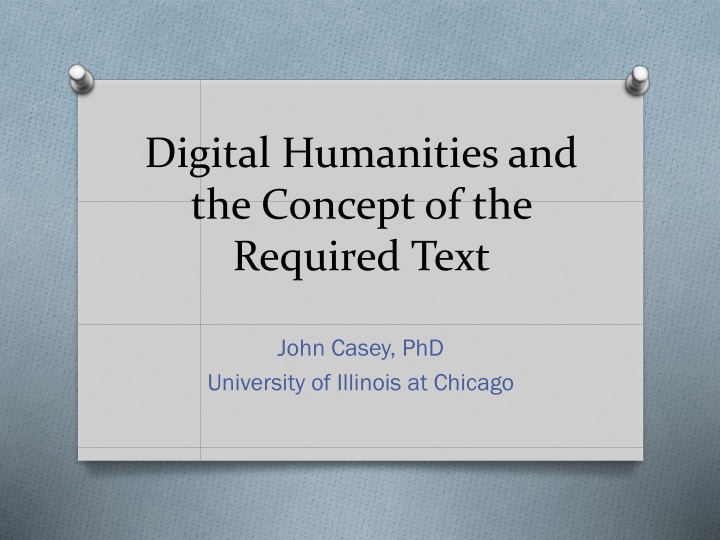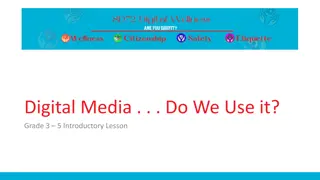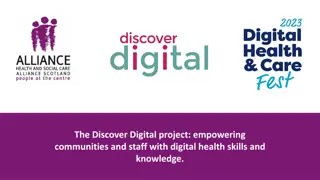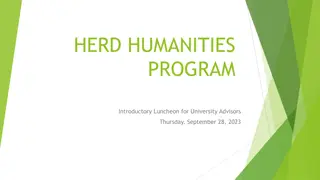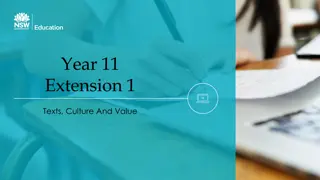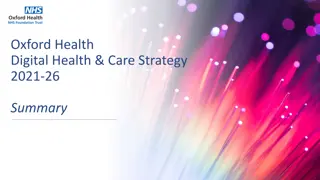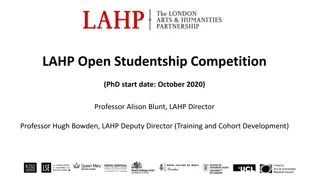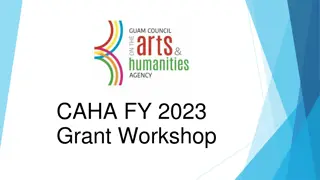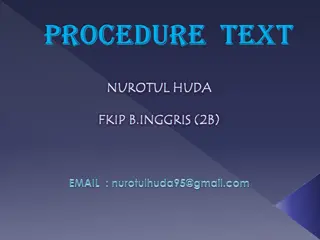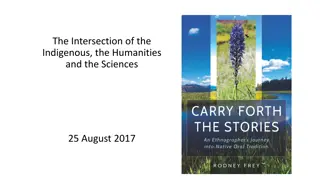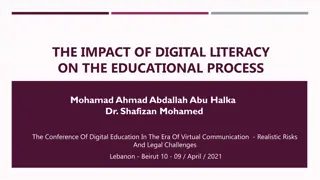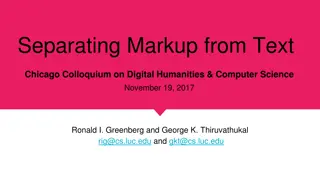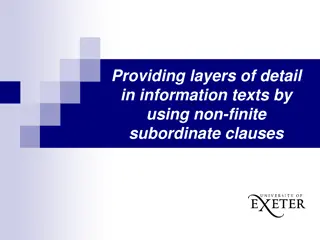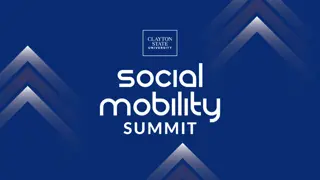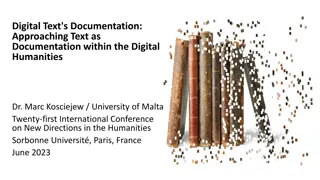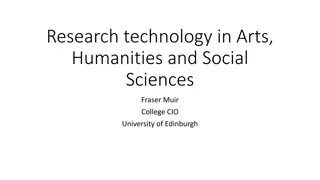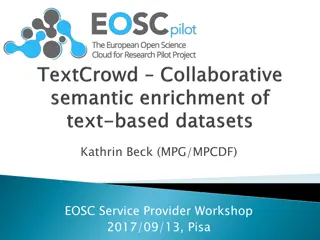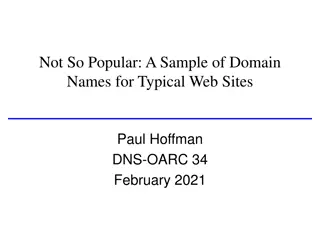Digital Humanities: Required and Authoritative Texts
Discover the significance of required and authoritative texts in academia, their role in literature and writing classes, and the shift towards digital editions. Explore the challenges and opportunities in adopting digital texts for teaching, influenced by cost factors and student preferences. Learn about creating and analyzing authoritative texts, exemplified by Norton Critical Editions and the Walt Whitman Archive. Delve into the implications of using digital texts for education and the access issues encountered.
Download Presentation

Please find below an Image/Link to download the presentation.
The content on the website is provided AS IS for your information and personal use only. It may not be sold, licensed, or shared on other websites without obtaining consent from the author.If you encounter any issues during the download, it is possible that the publisher has removed the file from their server.
You are allowed to download the files provided on this website for personal or commercial use, subject to the condition that they are used lawfully. All files are the property of their respective owners.
The content on the website is provided AS IS for your information and personal use only. It may not be sold, licensed, or shared on other websites without obtaining consent from the author.
E N D
Presentation Transcript
Digital Humanities and the Concept of the Required Text John Casey, PhD University of Illinois at Chicago
Required Texts O Most course syllabi include a list of required texts O The smallest number I require is ONE and the largest is EIGHT O Required texts in my literature classes are almost exclusively print texts with electronic texts serving as a supplement O Required texts in my writing classes are a mix of print and electronic texts
Authoritative Texts O These are texts that are recognized for the status of their content and/or the quality of the edition O In literary studies, the authoritative text has roots in Biblical (hermeneutics) and Classical Scholarship (philology) O Textual criticism is the term used to describe the activity of creating and analyzing authoritative texts
Authoritative Texts (cont.) O Norton Critical Editions are one of the more visible examples of authoritative texts O Prized for both the editorial brand as well as the textual apparatus (notes and supplemental essays) O Part of a network of texts that scholars take for granted when creating a course
Digital Authoritative Text O Many of the texts I teach in the literature classroom are available in multiple editions and/or are in the public domain O My preference is still the print edition but I have begun to experiment with digital editions that follow the same logic as the print authoritative text O Example: Walt Whitman Archive http://www.whitmanarchive.org
Problems and Possibilities O My move towards digital texts arose out of two necessities O The first was cost cost O The second de facto student use of e de facto student use of e- -texts rather than print ones (Google search reflex) O Seemed like an opportunity for me to teach my students (particularly English majors) about authoritative editions texts
Problems and Possibilities (cont.) O The main problems I face using digital texts are access issues access issues and the potential for distraction distraction O My classrooms lack technology needed to engage in close reading of e-texts O Students are easily distracted when reading a text on the web (not on an e-reader) O There are limits to close reading techniques with e-texts (need for a new reading method)
Questions for Consideration O How many required texts do you tend to have in your courses? O What criteria do you use to choose these texts? O Do you require specific editions? Why? O Do you use electronic texts in your literature class? If so, do you consider the issue of the authoritative text? Why or why not?
Further Reading O Abbott, Craig S. and Williams, William Proctor. An Introduction to Bibliographic and Textual Studies Introduction to Bibliographic and Textual Studies. 4th Ed. New York: MLA Press, 2009. O Burnard, Lou; O Keefe O Brien, Katherine; Unsworth, John (eds.). Electronic Textual Editing Electronic Textual Editing. New York: MLA Press, 2006. O Kirschenbaum, Matthew G. Mechanisms: New Media and the Forensic Imagination. and the Forensic Imagination. Cambridge, MA: MIT Press, 2008. O McGann, Jerome. A New Republic of Letters: Memory A New Republic of Letters: Memory and Scholarship in the Age of Digital Reproduction. and Scholarship in the Age of Digital Reproduction. Cambridge, MA: Harvard University Press, 2014. An Mechanisms: New Media
